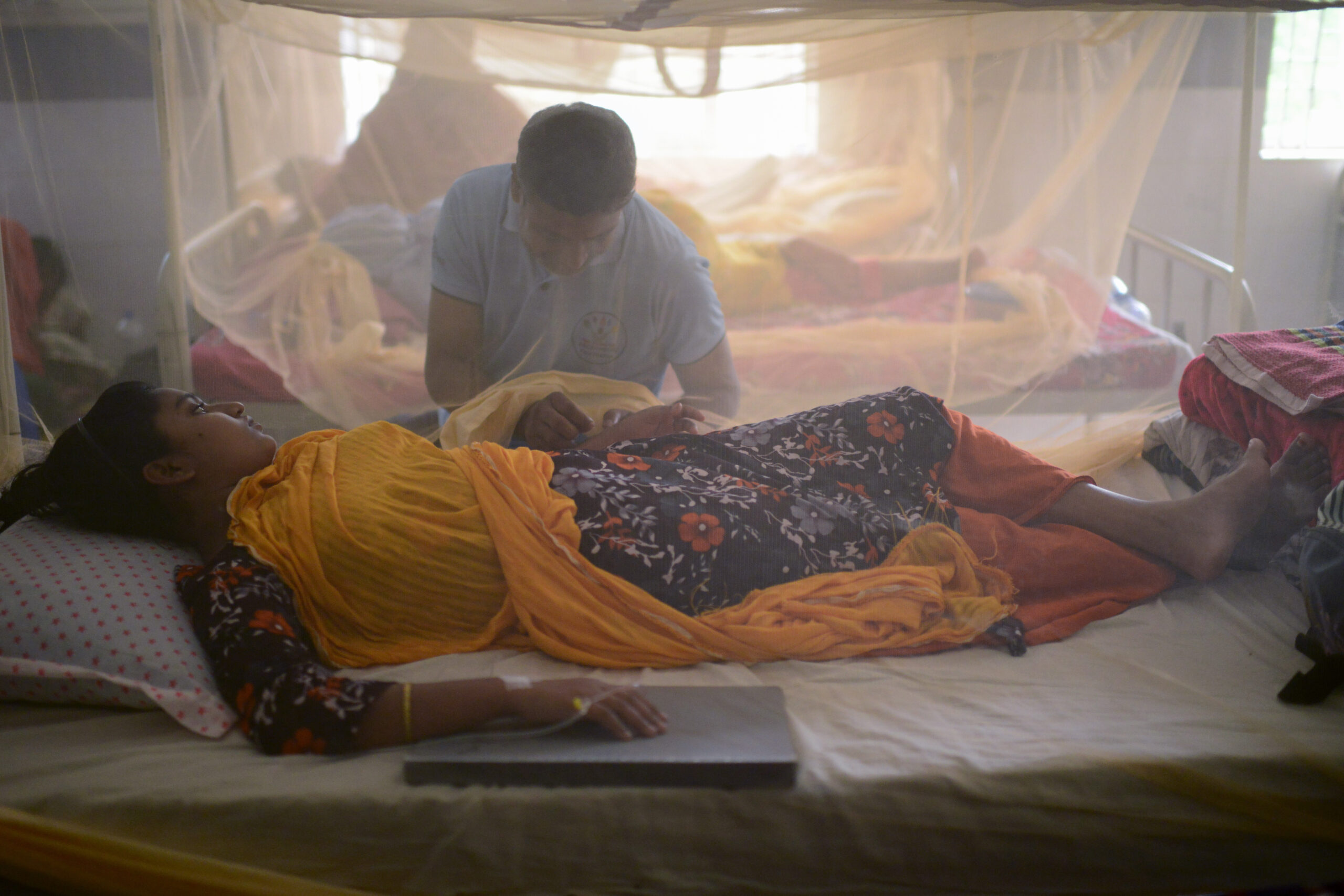DHAKA,Bangladesh (AP) – Bangladesh is struggling to deal with higher casualties and infections from dengue this year, with officials warning that the death toll this month could break records.
The government’s Directorate General of Health Services reports the 2023 death toll from the mosquito-born illness has reached 364 in the south Asian country. More than 78,000 people have been infected since January this year, it said.
Officials warn that the number of deaths and infections this month could set a new, grim record. In the first 10 days of August, more than 23,000 people were diagnosed with dengue, compared to 43,854 cases during all of July. More than 100 people have died so far this month, over a third as many deaths from the illness during all of last year.
In 2022, 62,382 people were infected and 281 people died of dengue, according to government figures.
Dengue causes flu-like symptoms that most people recover from, but also can rapidly lead to internal bleeding, organ failure and even death. There generally is no specific treatment for the disease, but vaccines are available Other countries, such as Cyprus and Bolivia, also have seen outbreaks this year.
Experts said monsoon season could exacerbate the outbreak in the country of more than 160 million people. Intermittent rains in August is one of the major reasons for the outbreak, according to experts. Many people work outside on Bangladesh’s numerous construction projects, including residential and big infrastructure projects across the capital city of Dhaka.
Infected people are overwhelming hospitals across the country, but some doctors and nurses are not sufficiently experienced, or trained, in how to treat dengue cases, experts said.
Director of Mugdha Medical Collage Hospital Mohammed Niatuzzaman said on Thursday that they were struggling to provide critical support to serious patients who have other ailments. Many of the critical patients are dying, he said.
People with immune suppression – like cancer patients – or people with co-morbidities like diabetes, kidney dialysis or organ transplants are particularly vulnerable, he said.
“People who have weaker immune system are at higher risk to be infected multiple times by a virulent variant (of dengue),” he said.
The Ministry of Health has arranged extra beds in state-run hospitals in Dhaka and outside, but a shortage of IV saline has become a challenge. The authorities have asked the manufacturers to increase their production of IV fluid.
Niatuzzaman said it’s critical to fight the disease on multiple fronts.
“It must start from individual level and rise to our collective effort. Doctors are only a part of it. If we work together and everybody shows awareness and acts responsibly, our collective effort will make dengue prevention possible,” he said.
Two city corporations in Dhaka opened emergency teams to coordinate anti-mosquito drive and urged the residents to be aware of the breeding possibilities of Aedes mosquitoes, which thrive in the region.
Mobile teams have been deployed to search homes to see if water is stored where mosquitoes could breed.
But local residents gave the government effort mild reviews.
Salma Jahan, a Dhaka resident and mother of a Dengue patient, said that she was worried.
“The government took a lot of measures last time. They applied insecticide in a lot of water bodies and its surroundings in our area. They also went to people’s houses and applied liquid insecticide on drains and dirty places. We still have such places but no insecticide is being applied,” she said, questioning whether the treatments are even effective.
The teams come with insecticide every few days, she added, “but mosquitoes don’t die from it.”




















































